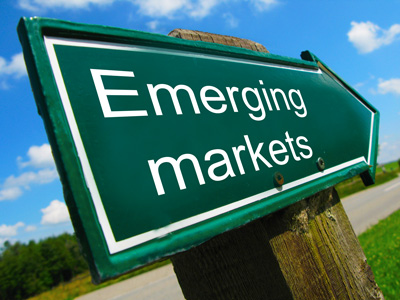Image:
destination360
|
Singapore formerly a British colony which became fully independent
in 1965 with approximately 5 million people with almost 60%
Chinese. Singapore is one of the major hub for investments in the Asian pacific
because of its cosmopolitan nature with different cultural background. Many
foreigners find Singapore as their new home because of the peace and tranquillity
and co existence of people of diverse culture and religion.
One of the reasons
that makes Singapore to rise is the creation of Economic Development Board (EDB) which facilitated companies like HSBC, MAYBANK, ASCOTT to have their
regional headquarters in Singapore. The general knowledge that economic growth
solves social problem and the realisation of the small domestic market with the
understanding that there is no natural resources to rely on made Singapore
government to invest in its people to have the required knowledge am be able to
compete well with the foreigners.
The government
created possibilities for export by opening up its borders for foreign direct
Investment unlike other countries they have always been outward looking.
Singapore Stats:
Ranking
|
Quality
of Life
|
Economic
Activity
|
1
|
London
|
London
|
2
|
Singapore
|
New York
|
3
|
New York
|
Hong Kong
|
4
|
Geneva
|
Shanghai
|
5
|
Sydney
|
Singapore
|
6
|
Hong Kong
|
Beijing
|
7
|
Paris
|
Dubai
|
8
|
Vancouver
|
Paris
|
9
|
Miami
|
Tokyo
|
10
|
Dubai
|
Frankfurt
|
Figure
1: Quality of life
Ranking
|
Data
2010
|
$ US
|
Expected
2050
|
$ US
|
1
|
Singapore
|
56,532
|
Singapore
|
137,710
|
2
|
Norway
|
51,226
|
Hong Kong
|
116,639
|
3
|
US
|
45,511
|
Taiwan
|
114,093
|
4
|
Hong Kong
|
45,301
|
South Korea
|
107,752
|
5
|
Switzerland
|
42,470
|
US
|
100,802
|
6
|
Netherlands
|
40,736
|
Saudi Arabia
|
98,311
|
7
|
Australia
|
40,525
|
Canada
|
96,375
|
8
|
Austria
|
39,073
|
UK
|
91,130
|
9
|
Canada
|
38,640
|
Switzerland
|
90,956
|
10
|
Sweden
|
36,438
|
Austria
|
90,158
|
Figure
2: GDP Per Capita (2010 PPP US$ )
(
Figure 1& 2 according to The Wealth Report 2012 published by Knight Frank and
Citi Private Bank)
The Attractions:
The above stats
might give you small indication about the growth and prospect of Singapore. Let
us look at some of the attractions
Closeness
to China: Singapore's closes to China which is the second largest economy in
the world has definitely impacted on her growth going by this
shows a direct relationship between the two economies.
Free trade: Singapore
government has always been one of the
foremost advocate for free trade and this preaching is paying off on the level
of influx of foreign companies. Singapore has the busiest port in the world. it
is also a key factor in its economic development.
Tax advantages:
Singapore opened up its borders by allowing Investors and companies to benefit
from the double taxation agreements with other nations. Start ups can gain tax
advantage for the first 3 years if certain conditions are met. Angel Investors Tax Deduction Scheme (AITD) this like (venture
capital) will also enjoy 50% tax deduction when they invest in start-up
companies
Real Estate : The
property business is booming with the abundant opportunities and also the
policy that allows investors to own property in their name which is not common
in the Asian-pacific.
Low Business cost:
Investors are drawing towards Singapore also because of the low cost of doing
business which is evident when the World bank ranks the country as the world's
easiest place to do business in its report (Doing Business 2011 report). It takes
just two procedures to register a company in Singapore with maximum of two days
timeline.
The challenges:
The multi cultural
divide might be used to disrupt the economy by some politician when they fill threatening.
There are also barriers for foreign companies to operate in some sectors like legal
services.
